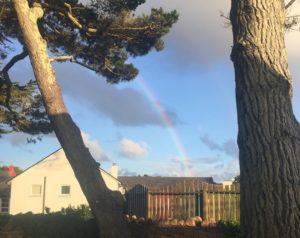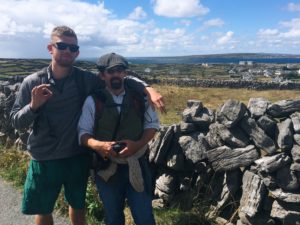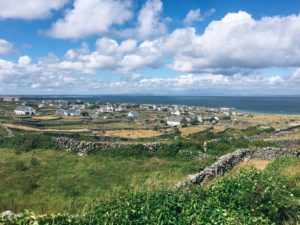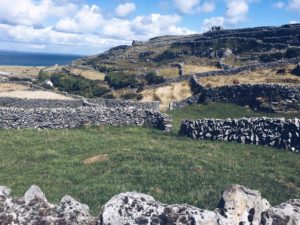
An bhfuil tú ceart go leor? Are you okay? This is a frequent question at the pubs in Carraroe as you approach. This question had become a topic of conversation among some of my friends as we tried to discern what the bartenders meant by “An bhfuil tú ceart go leor?” We initially assumed that by asking if we were okay, they were expressing their concern (Although with “American” tattooed across our foreheads, this could still be true). Among a young demographic of non-native speakers, this really seemed like a potentially plausible explanation.

We asked our teacher in the intermediate class, a native speaker finishing her PhD in Irish. She corrected us to say that “An bhfuil tú ceart go leor?” was almost their way of asking “How are you?” And similarly to the ubiquitous “how are you,” it is not acceptable to answer “Are you okay” by launching into a long explanation of how difficult classes are, how tired you are all the time, how confusing the Irish language is, etcetera, etcetera.

Even more specifically, in the pub setting, asking “are you okay” even more specifically means “do you need anything” or “have you been helped yet.” They ask the question the same way in English; it is still “Are you okay?”. If you’re okay, you’ve been helped already, or you’re not ordering anything. Otherwise, it’s not that you are currently emotionally unstable or having a tough time, just that you haven’t been helped yet, in which case the proper response would just be to launch into your order or ask them a question. I find it fascinating to learn not only the phrases in Irish, but how they carry over to the English in Ireland as well.

This week, we visited one of the Aran Islands, Inis Óirr (Inisheer). Below are some of the pictures of our trip. The Irish name “Inis Óirr” means “River meadow Island.” It’s English place name holds no meaning. This is true of so many places in Ireland. Their Irish name holds meaning and a vivid description of the place, while the English version is a nonsensical word. This is part of the reason that preserving the language, especially in Gaeltacht regions, is so important. The Irish words hold so much more meaning and culture than their English counterparts.




